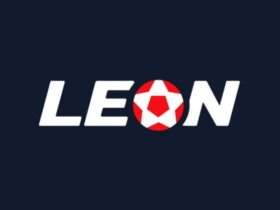Have you ever wondered why casinos allow people to win money from them? It seems like a failing business idea, but every year, the revenues keep rising for both physical and online casinos in India.
The reason why casinos can be profitable over the long term is due to the curious math behind casino games.
Are casino games rigged?
The simple answer to that is yes, and no. Most casino games like Roulette and Blackjack offer you a fair chance to win in every round; however, the casino will win against all the players overall given enough time. This means that it’s possible to have a winning streak at any casino, but it is also very likely that your chances of losing will keep increasing as you play more.
Why is this the case? It’s simply due to how casino games are designed. Let’s look at a fundamental example of Roulette, a top-rated casino game worldwide.
In this game, a ball is rolled on a wheel with usually 37 compartments (1-18 Red, 1-18 Black, and 0 Green). Players can bet on where the ball will land with fixed payouts. For example, if you bet that the ball will land on a red compartment, the payout is 1:1, which means you either lose your money or double it if you win. On the other hand, if the ball lands on the green compartment, the casino wins against all the other players.
On the surface, it might seem like an excellent deal for the player – there are 18 red compartments, 18 black compartments on the wheel and only one green one. So the casino only has a 1/37 chance of winning, while any player betting on red or black would have 18/37.
However, when we consider the payouts, things become a bit complex. As stated above, any player betting on either red or black gets a 1:1 payout, yet those are not the true odds of the game. If you make a bet with your friend and agree to a 1:1 payout, you expect your chances of winning to be 50%, like one political party winning over the other.
But with Roulette, the risk and reward are not balanced. Every player betting on either red or black has a 48.6% (18/37) chance of winning due to the extra green slot. If there was no green compartment, the risk and reward would be balanced as every player would have a 50% (18/36) chance of winning for a 1:1 payout.
If we extend the scale, it becomes apparent that the casino will eventually win over a considerable number of spins as they have the odds in their favour. Here’s a quick table to demonstrate it (assuming we bet 1 unit on red for every spin).
| Spins | Spins won (48.6%) | Money won | You lost | Casino won |
|---|---|---|---|---|
| 100 | 49 | 49 | 51 | 2 |
| 1,000 | 486 | 486 | 514 | 28 |
| 10,000 | 4,860 | 4,860 | 5,140 | 280 |
Of course, it is much harder to calculate the exact house edge in real life, but this example serves to explain the basic concept. Over the long term, we can assume that our luck would even out, and since the payouts of the casino games are not often linked to the actual odds of winning, the casino should eventually make a profit over a large sample space.
Lucky streaks are still possible
However, it is still possible to win against any casino in the short term, as long as you make your exit at the right time and never come back. History is filled with stories of gamblers going on massive tears and mind-blowing profits, yet the casinos will always win against their customers as a whole at the end of the day.
Some casino games such as Blackjack involve more skill, and the house edge in these games is amongst the lowest in the world, and some games like Poker do not come with any house edge, and a rake is collected from each pot by the casino.






























Leave a Reply
View Comments